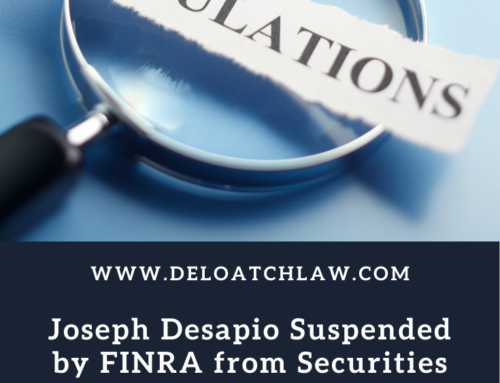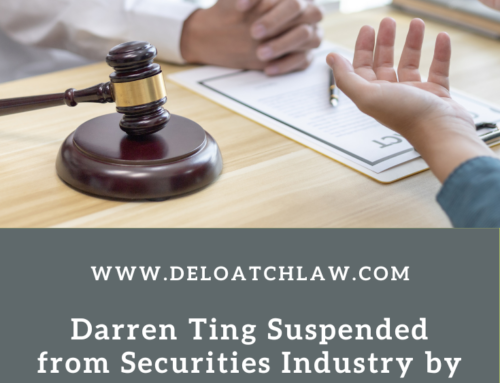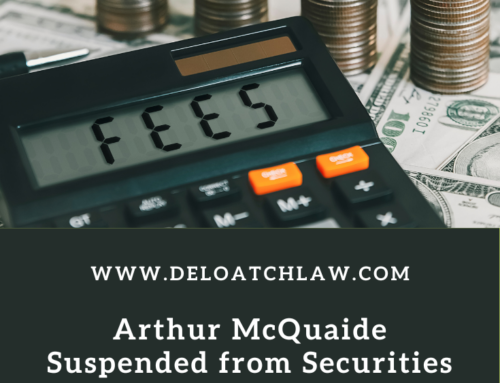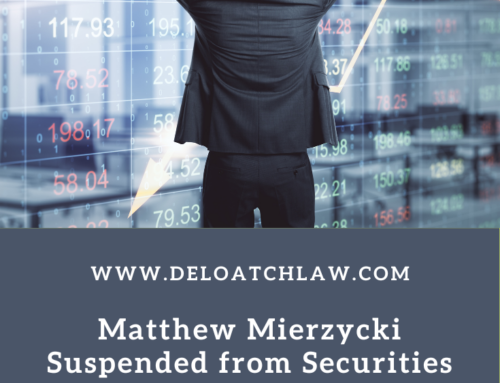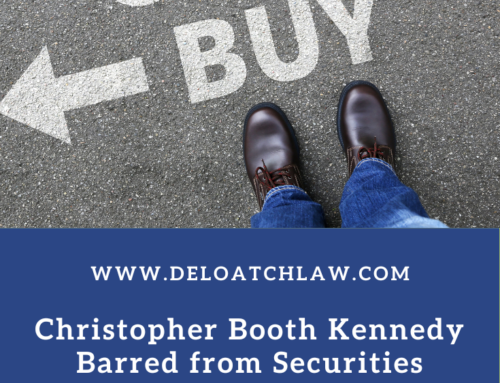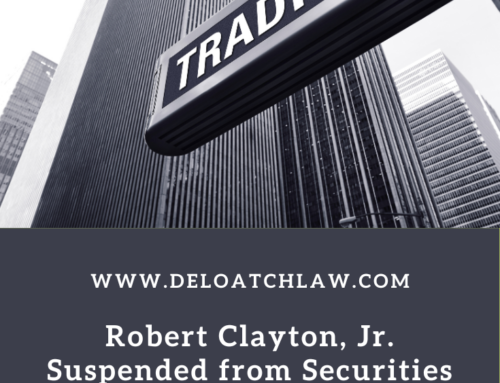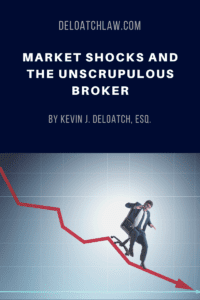 Market shocks, like the uncertainty in the stock market recently brought about by the coronavirus, have a way of revealing the wrongdoings of the unscrupulous broker and/or a broker-dealer. When the stock market is making new highs and investors are seeing their portfolios grow, investors and brokers get caught up in the euphoria of the gains. Both feel great about the fact they’re making money. However, the less scrupulous brokers hide their wrongdoing behind the market gains and the resulting euphoria.
Market shocks, like the uncertainty in the stock market recently brought about by the coronavirus, have a way of revealing the wrongdoings of the unscrupulous broker and/or a broker-dealer. When the stock market is making new highs and investors are seeing their portfolios grow, investors and brokers get caught up in the euphoria of the gains. Both feel great about the fact they’re making money. However, the less scrupulous brokers hide their wrongdoing behind the market gains and the resulting euphoria.
Quite often, when the market is doing well investors are less inclined to question their broker’s actions. When there’s a market shock and the stock market tumbles, the euphoria wares off as investors try to determine what happened to their portfolio gains. Only after placing both their portfolio holdings and broker under hyper-scrutiny do they become aware of some of the egregious actions of their financial advisors. A good example of this is the financial crisis of 2008 and Bernie Madoff.
The Financial Crisis of 2008 and Bernie Madoff
For decades up until 2008, Bernie Madoff ran what ultimately turned out to be the largest financial fraud scheme in the history of the United States, to date. It turned out that the investment wealth management arm of his business, Bernard L. Madoff Securities, LLC was nothing more than a Ponzi Scheme. This fraud was only revealed when it became impossible for Mr. Madoff to find new investors because of the market shock of the 2008 financial crisis.
In short, if not for the financial crisis of 2008 Bernie Madoff may not have ever been discovered.
The Financial Crisis of 2008 – Not Just Bernie
Bernie Madoff wasn’t the only financial fraudster unmasked by the 2008 financial crisis. There were countless SEC actions and FINRA arbitrations involving a whole host of financial products and sales-practice violations. For example, there were many instances where investors were sold various collateralized debt obligations (CDO’s) and tenancy-in-common securities (TIC’s) through private placement offerings and lost substantial amounts of money. Many of these investors were retirees who were looking for safe income producing investments. As it turned out, these types of securities were entirely unsuitable for them. Not only were those specific types of securities unsuitable, in many instances, too much of the investors’ net-worth and/or portfolio assets were exposed to these types of investments. The actions of the brokers in those instances created issues of over-concentration and/or suitability by exposing their clients to inappropriate levels of risk.
Additionally, there were quite a number of arbitrations involving issues of brokers engaging in unauthorized trading. Clients were not aware that their brokers had been buying and selling securities without their prior authorization, and in some instances, without even telling them.
Brokers have an obligation to recommend investments and investment strategies that are suitable to each client’s specific investment objectives and risk tolerance (FINRA Rule 2111). Moreover, broker-dealers have an obligation to properly supervise their brokers (FINRA Rule 3110). This obligation to supervise necessarily includes having proper supervisory procedures in place to monitor the recommendations made by the broker, and determining whether the transactions that occurred in a customer’s account were suitable and authorized.
The Coronavirus
Currently, the market is experiencing quite a bit of shock due to uncertainty about the coronavirus and how it will impact the global economy. From February 24, 2020 through February 28, 2020, the Dow Jones Industrial Average lost more than 3,500 points. This dramatic drop has had a meaningful impact on the portfolios of many investors. With history as a guide to the future, the precipitous drop in the market is going to reveal that some investors fell victim to unscrupulous brokers.
If you have experienced substantial losses what should you do to protect yourself?
Best Practices As an Investor
As an investor, it is always a good practice to review your account statements and trade confirmations to determine the appropriateness and legitimacy of your portfolio holdings. Indeed, this is the first step in determining whether you were the victim of an unscrupulous broker. If you believe you may have been, your next step should be to seek the advice of an experienced legal professional.
The Law Office of Kevin J. Deloatch, Esq. has an extensive securities law practice and over 30 years of experience on Wall Street. If you would like a free consultation, call today at (646) 792-2156. If there is a basis for filing a claim your time may be limited. Call today to avoid delay.

